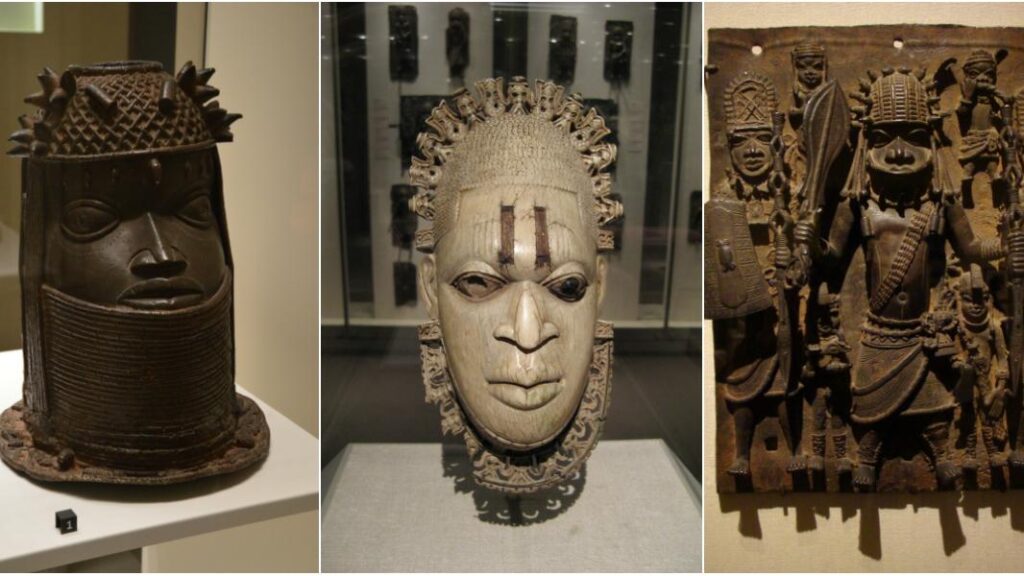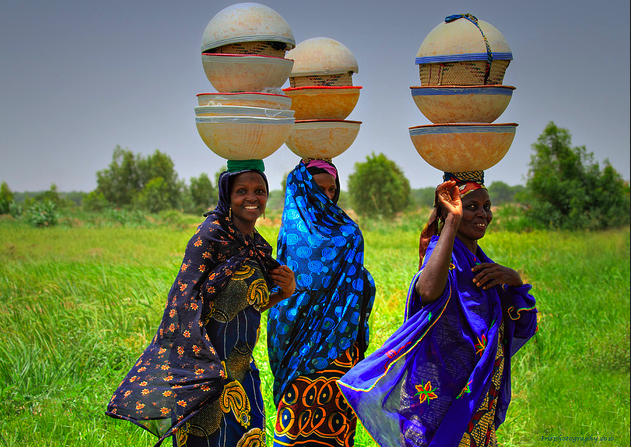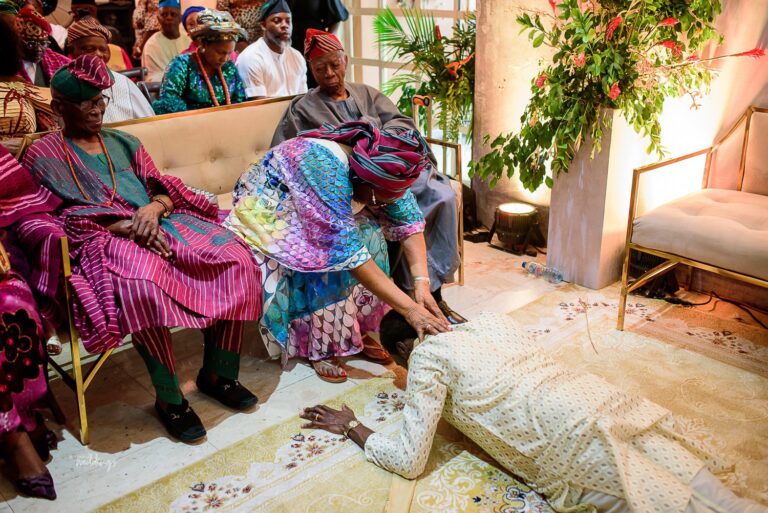Dear Beamers,
Greetings to you from all tribes in Nigeria! As the most culturally diverse black nation, it is crucial to pause and assess our status. Are we allowing our diversity to illuminate the beauty of our nation, or have we become neglectful custodians of this treasure? Committed to providing profound insights, we are pleased to bring you meticulously sourced information from individuals deeply invested in Nigeria’s culture.
Humanity’s shared cultural heritage, comprising traditions, knowledge, and artifacts from the past, faces threats such as environmental decay, rapid urbanization, and globalization. This invaluable legacy, a culmination of the efforts of past generations, is encapsulated in traditions passed down like genes. These customs serve as symbols of our uniqueness, distinguishing and preserving our collective identity.
While a gradual decline in quality across generations has been observed, the present generation experiences a significant deterioration. This decline underscores our detachment from origin, akin to a river losing touch with its source. Urgently addressing this cultural calamity is essential, as it threatens a lasting disconnection from our true identity. It is imperative to reclaim and assert our cultural heritage boldly before the amnesia of origin permanently separates us from our roots.
Cultural heritage encompasses both tangible and intangible facets of our shared history. It includes physical structures, artifacts, and artworks passed down through generations, along with customs, traditions, and knowledge defining our communities. This dynamic entity is not static; it evolves, actively shaping our present and future.
Our cultural heritage stands as a framework of our identity, history, and values, forging a connection to our roots and serving as a cornerstone for future innovations. It signifies a shared bond, anchoring us to our community, embodying our history, and defining our identity across the past, present, and future. However, numerous threats loom over cultural heritage, making its preservation crucial.
The protection of our cultural property has long been a persistent challenge. One of the most frequently recurring issues in protecting cultural heritage is the diminishing use of our mother language. Notably, language serves as a pivotal element, not just conveying words but summing up the values, traditions, and wisdom of a community.

James Oyebode, a Yoruba teacher at Brainchild High College, strongly advocates for preserving endangered dialects and languages as a crucial measure to sustain the diversity and richness of our culture. According to James
“It’s time for a serious rethink about our approach to language, particularly the ones facing the risk of extinction. There’s a worrying trend among parents who believe that sounding educated means adopting foreign languages, sidelining our own cultural richness. We’ve shifted from the days when TV and radio celebrated our local languages to now, where even our movie industry sacrifices cultural authenticity for pure English in a bid to go global.”
He added, “This raises genuine concerns about the cultural legacy we’re passing on to future generations. As a society, we urgently need to be intentional about preserving and promoting our languages, taking every possible opportunity to keep them vibrant and meaningful.”
The endangerment of a language doesn’t merely jeopardize its words; it erases unique expressions, idioms, and metaphors that carry profound cultural significance. These linguistic nuances offer insights into the history and worldview of a community.
As expressed by Tochukwu Eze, a civil servant from Lagos,
“It really saddens me to see that on social media, only the big languages dominate, making it hard for our lesser-known languages. Despite Nigeria’s diverse languages, our children mostly speak English or pidgin. Some don’t even know the meaning of their native names. The digital age is making it tough for our languages to be seen and heard, putting our culture at risk, especially for the younger generation. It hurts, and we need to do something to make sure our languages and culture don’t fade away. It’s time for a change.”
In the digital realm, content visibility algorithms often favor widely spoken languages, unintentionally marginalizing others. This bias perpetuates a cycle where dominant languages flourish, leaving lesser-known ones at a disadvantage. The dearth of online content in indigenous languages may lead younger generations to adopt more prevalent languages, gradually erasing the linguistic legacy.
Also, cultural heritage faces the threat of erosion through negligence and the neglect of traditional practices. These practices encapsulate the accumulated knowledge and skills of our ancestors, spanning craftsmanship, artisanship, community programs, and festivities. Vital for preserving cultural identity, they play a crucial role in fostering intergenerational dialogue.
Across history, traditional practices have been pivotal in shaping societies and communities, acting as a testament to the ingenuity and creativity of our ancestors. These skills showcase their innovative techniques and abilities, enduring the test of time.
According to Fakunle Sarah
“You know, one cool thing about our traditions is the skill we inherit from our folks. The way artisans put in work, passing down those skills through generations, is something else. The details and dedication they bring to traditional craftsmanship are just mind-blowing. Artisans, they’re like the keepers of our traditional know-how. Supporting them is like keeping our culture alive and kicking.”
She added, “No matter our religion or where we’re coming from, we should vibe together for cultural celebrations. It’s not just about the party; it’s about building connections and passing down our values. When we organize public events and show up as a community, it keeps our cultural identity strong and gives us that sense of belonging. We really need that unity to keep our heritage.”

Civilization signifies the growth and evolution of humanity, yet it should be seamlessly integrated to celebrate, not abolish, our culture. The surge in urbanization poses a significant threat to our tangible cultural heritage.
As cities expand and modern infrastructure prevails, historical sites confront the risk of demolition. Ancient temples, archaeological sites, and traditional neighborhoods are often bulldozed to accommodate highways, high-rise buildings, and shopping centers. This swift urban development not only wipes out physical reminders of our past but also disrupts the social fabric of communities, diminishing their cultural identity.
In the face of these threats, technology emerges as an innovative solution for the long-term preservation of cultural heritage. Digital documentation techniques, including 3D scanning, have revolutionized conservation efforts. Technology enables the creation of precise digital replicas of artifacts and historical sites, ensuring their existence even in the event of damage or destruction. These digital copies not only function as backups but also offer researchers and historians valuable resources for study and analysis.
In the opinion of Victor, CEO of Vik-Art, a digital artist who has maximized the digital space for artistic creations, he believes technology can also be instrumental in the conservation of our cultural heritage.
“Technology is changing the game for cultural exploration. With online exhibitions, anyone, no matter where they are, can dive into our shared heritage. These virtual spaces not only bring people together to learn and celebrate diversity but also protect artifacts from wear and tear.” He said.
He added “Beyond that, tech is stepping up for intangible cultural heritage. Digital archives and multimedia platforms protect traditional practices and knowledge, making sure they aren’t lost to time. Virtual experiences, powered by augmented reality, let us engage in traditional ceremonies, even if they’re far away. Social media adds to this by being a global stage for cultural sharing, where creators can showcase traditions to a wide audience. Even video games are joining in, blending tradition with tech to make cultural learning a part of modern entertainment.”

Preserving cultural heritage is a paramount imperative. It is our responsibility to protect and honor our shared history, ensuring that forthcoming generations can forge connections with their roots and build upon the foundations set by their ancestors. Our cultural heritage is integral to defining our humanity. Similar to biodiversity, cultural diversity is quantifiable and plays a vital role in the well-being of the human species. Any assault on cultural heritage in one corner of the globe resonates as an attack on all—on the entirety of humanity.
Safeguarding our cultural heritage for future generations demands a prioritized focus on preservation. This endeavor necessitates collective efforts, innovative approaches, and a profound understanding of its significance. Every community contributes to the world’s culture, emphasizing the importance of respecting and safeguarding all cultural heritage through both national laws and international treaties.
Any loss of cultural heritage is a forfeiture of our shared memory, jeopardizing our capacity to learn, construct experiences, and apply the lessons of the past to the present and the future. Let us wholeheartedly embrace the challenge of cultural preservation, recognizing it as our responsibility to maintain our collective heritage as a wellspring of inspiration and knowledge for the future.




